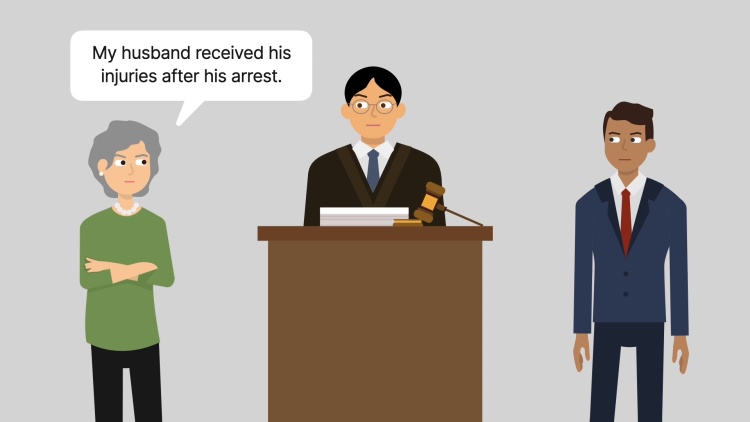City of Louisville v Humphrey
Kentucky Court of Appeals
461 S.W.2d 352 (1970)
- Written by Sarah Larkin, JD
Facts
Humphrey (plaintiff) was picked up by the police of the City of Louisville (Louisville) (defendant) at 2:15 a.m. because he was heavily intoxicated and disturbing people by shaking their doors. He was arrested and booked within 20 minutes. He was held in a holdover department at the jail until about 4:00 a.m. He was then taken by elevator to the third floor of the jail. He fell as he was coming out of the elevator. An officer caught him and laid him on the floor. He was dragged to the “drunk tank” and left lying on the floor. There may have been one other person in the “drunk tank” at the time. At around 7:00 a.m. a guard attempted to wake him to go to court, but he was unable to. The guard concluded that he was still too intoxicated and left him there. The guard tried to wake him again at noon, but was unable to. Humphrey was taken to the hospital, where he was diagnosed with a subdural hematoma from injuries to his left eye and forehead. He underwent surgery, but died without ever regaining consciousness. Humphrey’s wife sued for negligence. The matter went to trial. Humphrey’s wife never submitted direct evidence that the injuries were inflicted by the officer, guards, or fellow prisoners. The jury returned a verdict in favor of Humphrey. Louisville moved for a judgment not withstanding the verdict, but was denied. Louisville appealed to the Kentucky Court of Appeals.
Rule of Law
Issue
Holding and Reasoning (Hill, C.J.)
What to do next…
Here's why 909,000 law students have relied on our case briefs:
- Written by law professors and practitioners, not other law students. 47,100 briefs, keyed to 997 casebooks. Top-notch customer support.
- The right amount of information, includes the facts, issues, rule of law, holding and reasoning, and any concurrences and dissents.
- Access in your classes, works on your mobile and tablet. Massive library of related video lessons and high quality multiple-choice questions.
- Easy to use, uniform format for every case brief. Written in plain English, not in legalese. Our briefs summarize and simplify; they don’t just repeat the court’s language.





